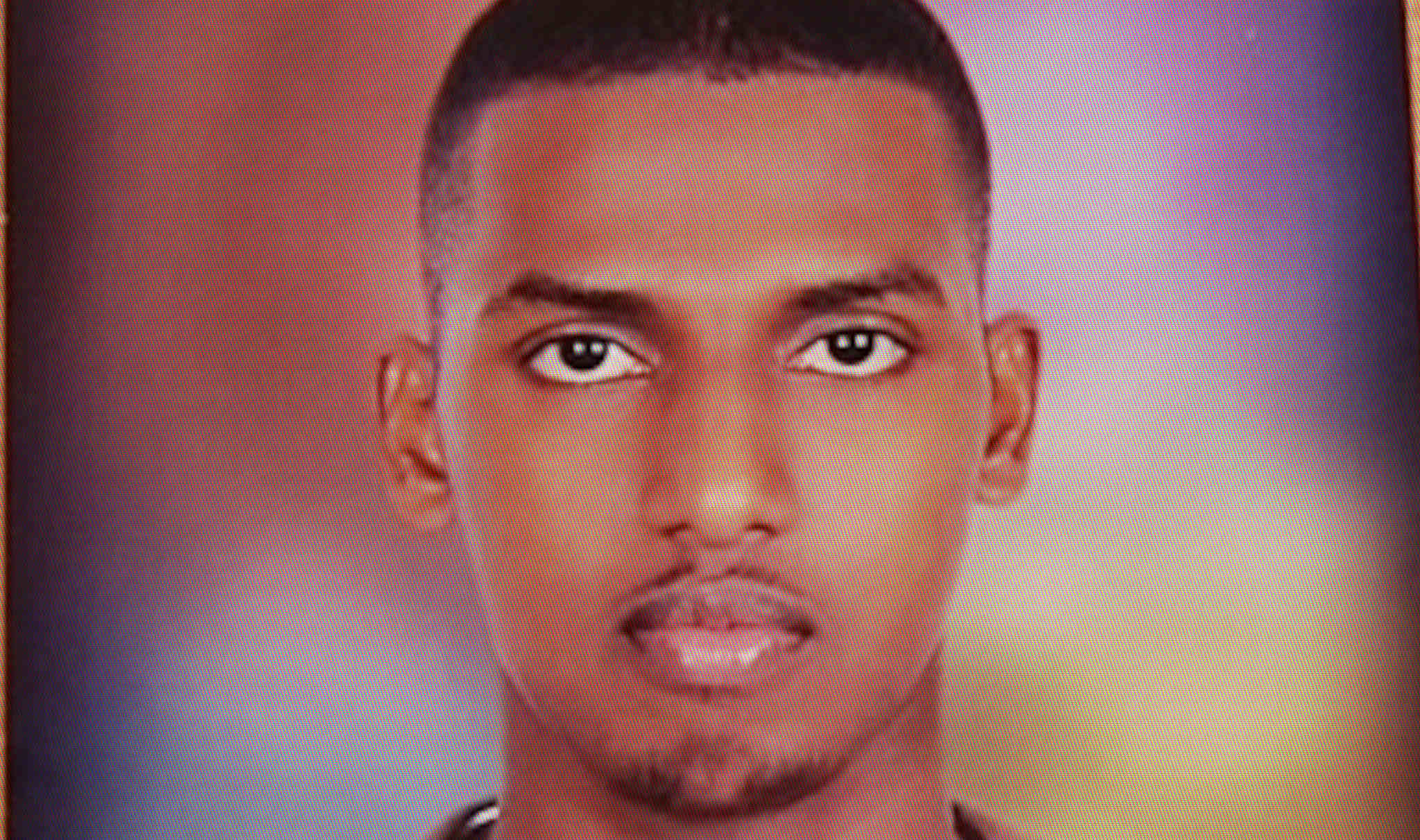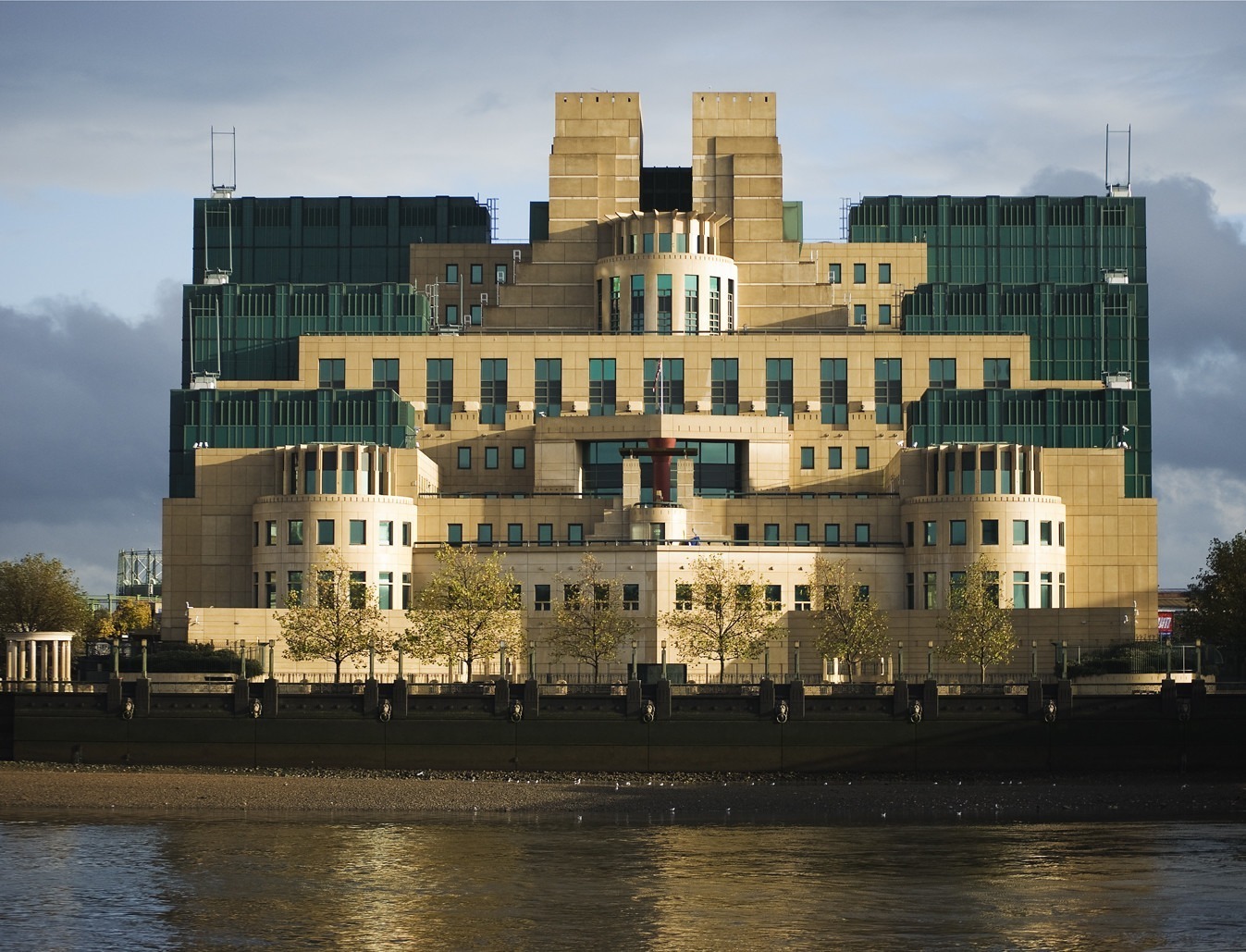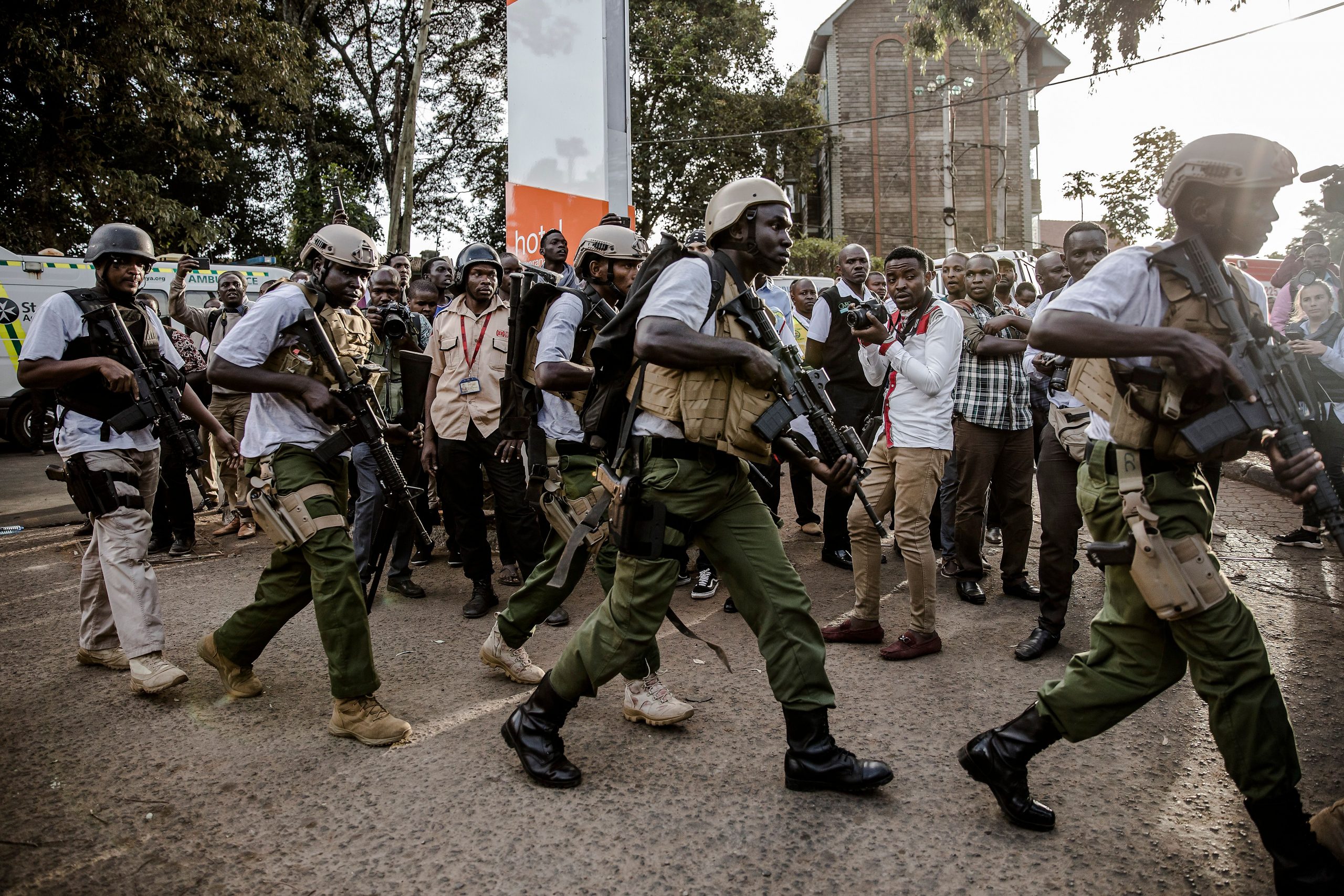Over the past decade, UK home secretaries have regularly stripped British nationals of their citizenship, using their “unusually strong” powers, in the words of the UK government’s reviewer of terrorism legislation.
The Home Office deprived twice as many citizens of British nationality on national security grounds in four years – 66, between 2018-2021 – than during the previous six years. Human rights lawyers have described the practice as akin to “medieval exile”.
One such person is Mahdi Hashi, a British Somali former youth worker who was accused of supporting the Somali militant group Al-Shabaab, which is designated a terrorist organisation by the UK and US.
Somali-born Hashi arrived in Britain with his family as a five-year-old in 1994 after they fled the civil war in Somalia and claimed asylum. At the age of 14, he became a British citizen.
Soon after being deprived of his UK citizenship in 2012, Hashi was arrested in the East African state of Djibouti, and disappeared into secret detention, where he alleged that he was threatened with torture by his Djiboutian captors.
Djiboutian forces handed him over to American authorities which then rendered him to a federal prison in New York. At the time, Hashi’s British lawyers demanded to know whether the British government was complicit in the detention and rendition of the former social worker but the Home Office would not comment.
MI6 was “waiting right there for their debriefing”
In 2015, after facing trial, he struck a plea deal with prosecutors and was convicted on terrorism offences.
Declassified can reveal that the UK’s Secret Intelligence Service (SIS, better known as MI6) was “waiting right there for their debriefing” during Hashi’s interrogation in Djibouti, according to a former senior US official with direct knowledge of Hashi’s case, speaking on condition of anonymity.
An MI6 officer – pseudo-named “Gemma” – was on the ground in Djibouti less than two months after the Home Office stripped Hashi of his citizenship, wanting to influence his interrogation, we have been told.
She received daily updates of the “raw” information from Hashi’s interrogation, via MI6’s close relationship with its US counterparts, principally the Central Intelligence Agency (CIA), which was part of a team that initially questioned Hashi.
Not only was MI6 likely tracking Hashi’s movements across East Africa, the intelligence agency knew he would soon be arrested, as an officer was already waiting in Djibouti by the time a US interrogation team arrived.
Hashi’s arrest would have been impossible without MI6 cooperation, the former US official speaking to Declassified believes. “We knew an awful lot about [Hashi]…that could only have come from the UK side and, being as it was fed as through the CIA, that meant [MI]6.”
The UK conveniently removed any of its obligations to Hashi by stripping him of his citizenship prior to his arrest. But still “they wanted him interrogated…There’s no doubt about that.”
MI6’s “special relationship” with the CIA ensured the UK’s access to any intelligence the former Briton could provide. It was a win-win.
Declassified put the findings of its investigation to the UK Foreign Office, which oversees MI6. The government department acknowledged receipt but did not respond.
Washing Her Majesty’s hands
Madhi Hashi had long been known to the intelligence services, but not necessarily because he’d done anything wrong. Britain’s domestic security service, MI5, had been trying to recruit the young Somali-British Muslim as an informer since he was a teenager, he says.
In May 2009, Hashi and four others went to the media with their allegations that MI5 agents told them they’d be detained in the UK or overseas for terrorism offences unless they cooperated with the agency.
Hashi said MI5 wanted him to inform on members of the Somali community in London and encourage them to talk about jihad, on the presumption some of them might be planning to work with Al-Shabaab.
Fearing backlash for speaking out, Hashi left for Somalia within months.
In June 2012, Hashi’s father received an envelope at his Camden address in London; it contained home secretary Theresa May’s order to deprive Hashi of his citizenship for “the public good”, a category that includes national security grounds. At the time, Hashi was being detained by Al-Shabaab in Somalia.
By the time his family managed to contact him, he had only a few days left to appeal. Apparently unaware of his imminent arrest, Hashi later claimed he was making his way home to the UK via Saudi Arabia. He got as far as Djibouti.
In the early hours of 4 August, Djiboutian forces raided the hostel where he was sleeping and disappeared him into incommunicado detention, where US interrogators would question him with the knowledge of MI6.
Hashi reports pleading with his interrogators to speak to UK officials but claims they ignored him. The Home Office refused his family’s requests for help months later, when they learned through a released prisoner what had happened to their son.
“We washed our hands of him—Pontius Pilate lives on,” lamented Baroness Helena Kennedy QC, Hashi’s representative at the Special Immigration Appeals Court (SIAC) in London, which hears challenges to citizenship deprivation orders.
The Home Office claimed it didn’t know where Hashi was when in Somalia – and, by implication, did not know his whereabouts thereafter – according to the SIAC ruling, which conveniently added that the UK government had no obligation to search for him.
Asked whether the stripping of Hashi’s citizenship was related to his subsequent enforced disappearance and interrogation in Djiboutian detention, the Home Office declined to comment on the case, citing its “longstanding convention that we do not comment on intelligence and security matters”, nor individual cases.
The ministry also did not answer questions about whether it provided information on Hashi to the ‘dirty’ team via MI6, knew of Hashi’s requests for consular assistance, and the date it became aware that the British government knew of his secret detention and interrogation.
The Home Office spokesperson added: “Maintaining our national security and keeping the public safe are the government’s top priorities…Depriving someone of their British citizenship is never a decision that is taken lightly and always comes with a right of appeal.”
Interrogation at ‘Plateau du Serpent’
Throughout his captivity, no one in the UK government knew where Hashi was — at least that was the official line.
MI6, however, knew he was in Djiboutian intelligence (SDS) custody at a secret facility in the Plateau du Serpent neighbourhood of the capital, also used by US agents to interrogate high-value detainees, Declassified can reveal.
Behind a concrete fence with barbed wire, near to the Sheraton hotel, is a white, 3-4 story building containing the SDS’ jail cells, arranged around a central courtyard. The cells are lined with white tiles.
In a country repeatedly accused of torture of political prisoners and terror suspects, the tiles are “easy to clean”, the former US official explains.
Hashi was interrogated by a mobile interrogation team of the US High Value Detainee Interrogation Group (HIG). Created in 2009, interagency HIG teams were supposed to ensure that the CIA wasn’t going it alone, as it had in the bruising years of its Detention and Interrogation Program, known to its critics as the “Torture Program”.
“Hashi was interrogated by a mobile interrogation team of the US High Value Detainee Interrogation Group”
Alongside the CIA, officers from the FBI and Defense Intelligence Agency (DIA) made up the so-called “dirty team” that Hashi encountered, lawyer-less in his first days of captivity.
In terrorism interrogations, a “dirty team” interviews the detainee to extract useful intelligence, such as about relationships with terrorist groups or planned attacks.
If a detainee is to be prosecuted in US courts, as Hashi would later be, only testimony that the detainee gives to the “clean team” is admissible. Hashi would have been advised of his constitutional rights, such as the right to remain silent and the right to counsel, and would have said that he was giving testimony without coercion.
Hashi stated in his affidavit that he “feared that my refusal to cooperate would result in torture and sexual abuse”.
He also stated that he observed Ali Yassin Ahmed, his co-defendant, strung up, blindfolded and beaten and that Djiboutian guards threatened him with beatings and rape or worse, if he did not cooperate with the Americans.
‘The library’
Djiboutian captors were present alongside the Americans at every interrogation, including during the “clean” interrogations in which an FBI-led team took his testimony for trial; the Djiboutian officials present included individuals Hashi says he saw beat his co-defendant.
Our source confirmed that Djiboutian intelligence officers were present during the interrogations, which would take place in an airier, more pleasant room called “the library”. “He’d been with the Djiboutians for a while and God knows what they did with him,” the former senior US official says.
The former official added: “Once we had the allegation from Hashi that there was some type of intimidation being used, you got to assess that, assume that’s true…But you’re operating in somebody else’s country and under somebody else’s rules…the Djiboutians or whatever, they’re under the impression that they’re a sovereign nation… And that’s just something you have to accept, especially in the intelligence world.”
Even if that involves torture?, we asked the former official. “Even if it’s, yeah, icky.” However, Declassified’s source did not believe that Hashi had been abused or witnessed the abuse of others.
“The US-Djiboutian intelligence partnership has had a long and inglorious history,” Professor Sam Raphael, an expert on CIA rendition operations, told Declassified. “Djibouti was a central node in the CIA’s global programme of enforced disappearance and brutal torture which ran during the so-called ‘War on Terror’. The CIA had unrestricted access to detainees kidnapped in Djibouti and held in secret detention in the country.”
Hashi made a deal with his prosecutors at trial and pled guilty to providing material support to a foreign terrorist organisation, among other charges. This was in early 2015 and followed three years in solitary confinement, the prolonged experience of which is torture, UN experts agree.
He was subject to harsh “special administrative measures”, according to the court case filings, and made the plea deal after the court refused Hashi’s petition that it dismiss testimony he says he provided under duress.
MI6 in the wings
At a high-end hotel three kilometres – or a 20 minute-drive in traffic – away from where Hashi was being detained in the capital, an MI6 officer actively sought daily debriefs from a representative of the “dirty” interrogation team about what Hashi was saying during his questioning, both from US interrogators on the ground and other US intelligence channels.
“Gemma” was not present while Hashi was being questioned, the former US official explained. But she was persistent, already “hanging around” and waiting for the US HIG team to begin working. “She wants the raw data and she’s probably reporting up her chain of command [that] she’s got access.”
A Swedish intelligence officer was also present, presumably interested in the two Somali Swedish men arrested alongside Hashi.
Gemma would solicit and trade information about Hashi with the US team, our source believes. Her main contact was her CIA counterpart. “She would wait for the chief to come around. She would get her download from that guy or from the other [MI]6 guy who was rolling around.”
“The MI6 officer was said to be aware of the general conditions of Hashi’s detention”
She would use “the usual techniques, creating the impression she knows more about what’s going on inside the interrogation room than she probably does.” Gemma’s friendliness, including an attempt to build bridges with the HIG team, extended to inviting them to a pub quiz one evening.
Despite not being present for Hashi’s questioning, the MI6 officer was said to be aware of the general conditions of Hashi’s detention. “Gemma” knew details about the interiors of the cells (white tiles), how many men they’d hold (about 10), the toilet locations, the cooking ladies and the dishes they would prepare.
This was the case not just for Hashi, and not just in Djibouti – MI6 had been for years exceptionally well briefed about the interrogation of terrorism suspects by its foreign counterparts.
In 2018, the UK parliament’s Intelligence and Security Committee (ISC) reported 198 cases where British personnel received intelligence from their foreign counterparts obtained from detainees whom they knew had been mistreated, or where they should have suspected mistreatment.
This would have likely been the case for any detainee held in Djibouti, where the CIA had a proxy detention site run by the Djiboutian intelligence service in the years after 9/11. The ISC noted MI6 was also happy to pass questions to US interrogators and conduct interviews jointly with them.
Deep complicity
In this regard, MI6 has form. “British complicity has run deep,” said Raphael, a professor of international relations and human rights at Westminster University. “The UK’s intelligence agencies have long been involved in the CIA’s illegal practices …Intelligence has been passed to the [CIA] to enable targets to be located and captured.”
The ISC report also stated that between 2001-2010, British intelligence agencies played a major role in the rendition of suspects like Hashi. MI6 and its domestic counterpart (MI5) paid for, or offered to pay for, the extraordinary rendition of suspects in three cases.
The agencies also suggested, planned or agreed to rendition in 28 cases, and provided intelligence for the rendition of 22 others.
Prof Raphael added: “Questions have [also] been passed along for use during interrogation, including so-called ‘enhanced interrogation’ (torture), with the results fed back into the British intelligence picture. Throughout, a key priority of UK officials has been to keep clean hands.”
Declassified previously revealed that the intelligence agency misled two inquiries about its role in the detention in Kenya of a British terror suspect, Michael Adebolajo, who alleged abuse by his Kenyan captors.
In fact, MI6 officers, working through their Kenyan liaison, tracked and arranged for the arrest of Adebolajo. The same Kenyan intelligence cell that works closely with MI6 also interrogated him, according to a parliamentary report. So, despite MI6’s hidden hand in the case, the intelligence agency could still plausibly deny its involvement.
Though Declassified’s US source does not believe “Gemma” was necessarily aware of Hashi’s claim he’d been mistreated by Djiboutian officials, it certainly was a foreseeable possibility due to Djibouti’s reputation for abusing and torturing terror suspects.
MI6’s ‘hands off but ears open’ approach obviated “any legal responsibility [for the UK] for the conditions or contexts of [a detainee’s] detention”, Prof Raphael noted.“Despite this…the UK has long been deeply and directly involved in illegal detention and interrogation practices, and cannot absolve itself from the moral if not legal consequences of its actions.”
But because the UK government claimed no duty of care towards Hashi, since depriving him of citizenship, it had no reason to seek to know more about his abuse.
Bending over backwards
“What you describe is entirely consistent with what the relationship has been like for years and years,” described CIA veteran Professor Paul Pillar, reacting to Declassified’s findings. “There’s hardly any liaison relationship that US Intelligence has had that’s any closer than the one with the UK.”
Why weren’t Gemma or other MI6 officers present for Hashi’s interrogation, as they’d been in other cases? The CIA’s “bad press” over its torture of detainees in global black sites might have led MI6 to distance itself from what was going on with Hashi. MI6 would also have been aware of Djiboutians’ harsh treatment of detainees.
“MI6 would also have been aware of Djiboutians’ harsh treatment of detainees”
Another incentive would be that the UK government did not want to acknowledge its practice of stripping citizenship prior to the capture-or-killing of terror suspects by a partner military or intelligence service – usually the United States.
This was the case that same year, 2012, when a US drone assassinated former UK nationals Bilal al-Berjawi and Mohammed Sakr in Somalia after Theresa May had stripped them of their citizenship.
Leaked documents from the Pentagon show that the US government had received intelligence on Berjawi’s movements in the UK for the five years prior to his assassination, indicating the UK’s government’s role in providing surveillance data on him.
This is a practice tried and tested in Yemen, where MI6 human intelligence and GCHQ surveillance data are crucial to the identification and tracking of terror suspects for assassination by US drone.
‘No way it was an accident’
After Hashi was rendered to New York in 2012, his British lawyer, Saghir Hussain, expressed fears that “the withdrawal of citizenship and the kidnapping by the Americans may have been coordinated” with the British government.
Commenting, our source said “There’s no way it was an accident”, referring specifically to the coincidence that the UK stripped Hashi of his citizenship mere weeks before his arrest in Djibouti, apparently at the request of US intelligence, our source said.
“It was known he was stripped of his citizenship, and that precluded the involvement from your guys [MI6] who still seem to want to show up and tell [the interrogation team] how to do things.”
MI6’s arms-length-but-keen interest in what Hashi was saying to the Americans may have been “a matter of ‘why do we need to assume a direct role if we can count on the Americans to give us whatever information is to be gotten and to handle the case properly?’” opines Pillar.
The UK government had already driven a thick wedge between it and Hashi, by stripping him of his citizenship when he was uncontactable in Somalia. “Why even take the chance of getting into something where there might be hazards as it might relate to issues of whether the person was a UK citizen or not?”
“[MI6] invented spying… There’s people that bend over backwards [in the US government] to make sure you get what you need,” says our source. “They don’t interrogate [the detainee] themselves. They find somebody else to do it….the same people who do the drones”.
Not our citizen
“Britain can now claim that we were not complicit because he was not our citizen,” lamented Baroness Kennedy to parliament. She had argued Hashi’s case at SIAC that he would be illegally rendered stateless if the court were to uphold his deprivation of citizenship. It nevertheless did.
While international law generally prohibits states from rendering their citizens stateless, a 2014 amendment to the Immigration Act allows the UK government to do so if they threaten vital national interests, so long as the government “reasonably believes” they can probably gain another citizenship.
“Is that the purpose of this change of law,” Baroness Kennedy questioned the House of Lords, “that we might be able to do things that make people vulnerable and deny them their rights, creating yet more black holes where no law obtains but where we cannot be accused of complicity?”
Hashi served four years of his sentence in New York’s “little Gitmo” jail, named after the infamous Guantánamo Bay detention facility, known for torture and other abuse.
In 2020, the US deported him to Somalia, ironically where he is supposed to have carried out the offences to which he agreed to plead guilty after years of solitary confinement, and after the court refused to throw out testimony he says he made under duress.
Whether Somalia will accept Hashi as a citizen is unclear – but apparently the UK government does not consider his fate its problem.
The Home Office’s full response:
- It is longstanding convention that we do not comment on intelligence and security matters.
- We also do not routinely comment on individual cases.
- Maintaining our national security and keeping the public safe are the government’s top priorities.
- The Home Secretary also has the power to deprive someone of their British citizenship on conducive to the public good grounds, where it would not render them stateless. Depriving someone of their British citizenship is never a decision that is taken lightly and always comes with a right of appeal.







